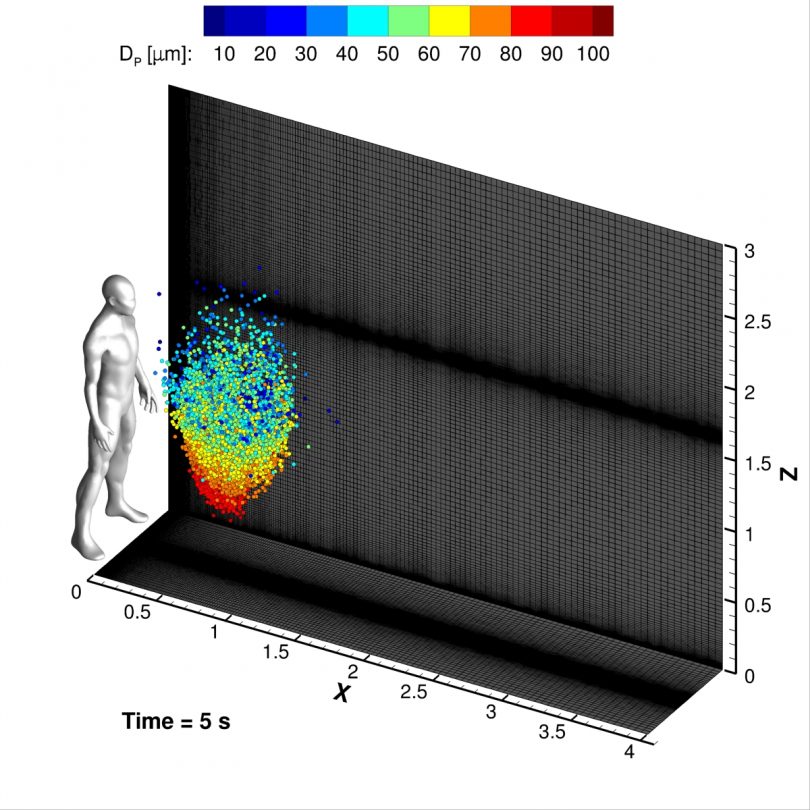One year ago, the Big Data Association welcomed project proposals which were requesting computing resources to contribute to the mitigation of the impact of the COVID-19 pandemic. Researchers of all nationalities with affiliation to both public and private Italian institutions have submitted ambitious research projects.
The study, “Eulerian–Lagrangian modelling of cough droplets irradiated by ultraviolet–C light in relation to SARS–CoV–2 transmission,” published March 9, was authored by Valerio D’Alessandro, Matteo Falone and Luca Giammichele, Università Politecnica delle Marche.The authors want to acknowledge Associazione Big Data that awarded this research work within COVID-19–Fast access to the HPC supercomputing facilities program, and ENEA for awarding them access to CRESCO6 based at Portici (NA).
Here the summary of the research on Flow and the Virus special topic launched by Physics of Fluids:
It is well known that several viruses, as well as SARS-CoV-2, can be transmitted through airborne diffusion of saliva micro-droplets.
This research work aims to provide a contribution to the numerical modeling of saliva droplets’ diffusion produced by coughing. It is worth noting that droplets’ diameters of interest in this work are such that represent typical emission during a cough. In particular, the well-known problem around the safety distance to be held for avoiding virus transmission in the absence of external wind is further investigated. Thus, new indices capable of evaluating the contamination risk are introduced, and the possibility to inactivate virus particles by means of an external ultraviolet-C (UV-C) radiation source is assessed.
Links to further reading to the research project:

